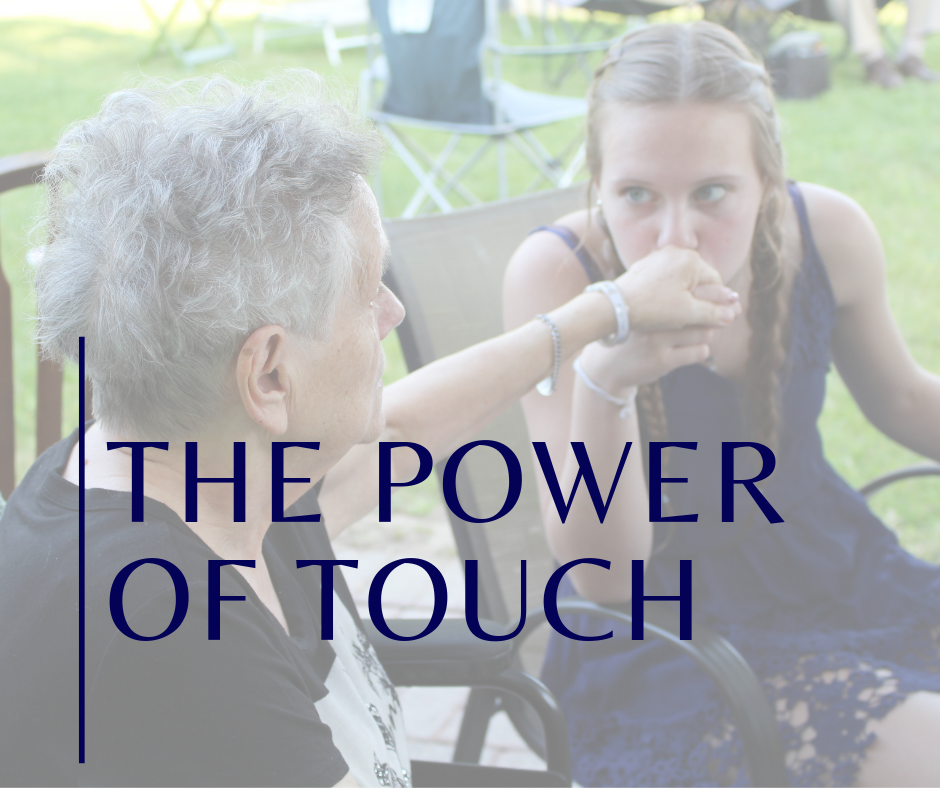Persons with dementia are still humans. And we should continue to treat individuals with the same dignity, respect, and love that we always have before a dementia diagnosis. While some individuals might not be able to tell you a name, a date, or what you were wearing the day before, they will always remember the feeling of a hug, holding a hand, or a simple pat on the back. As human beings, we sense feelings of safety, comfort, and love in human touch.
Familiarity is an important aspect for people living with dementia, and what better way to make a person feel safe than with a familiar hug from their child, grandchild, or friend?

Studies have found the benefits of touch for persons living with dementia. This includes reducing symptoms associated with dementia, such as agitation, feelings of restlessness and vocalization. Touch also helps with feelings of anxiety and loneliness.
It is important to note that there are a variety of ways to approach a person with dementia if you do want to share touch with them. Always ensure you approach individuals and have their consent or this may cause feelings of frustration or a loss of dignity. Simple touch can include hand massages, hand holding, a pat on the back, or a high five. It is important to maintain dignity and respect for individuals and to not touch if you sense that a person is not comfortable.
For me, I know that my grandmother Marilyn hardly refuses a hug from me and her eyes brighten when we hold hands and sway to the beat of a song. It's these moments that I cherish as she continues on her dementia journey. Sharing a moment of touch allows us to connect in ways that words never could.
References
Hansen, V. N., Jørgensen, T., & Ørtenblad, L. (2006). Massage and touch for dementia. Cochrane Database Systematic Reviews, 18(4). doi: 10.1002/14651858.CD004989.pub2
Woods, D. L., Craven, R. F., & Whitney, J. (2005). The effect of therapeutic touch on behavioural symptoms of persons with dementia. Alternative Therapies in Health and Medicine, 11(1), 66-74.


